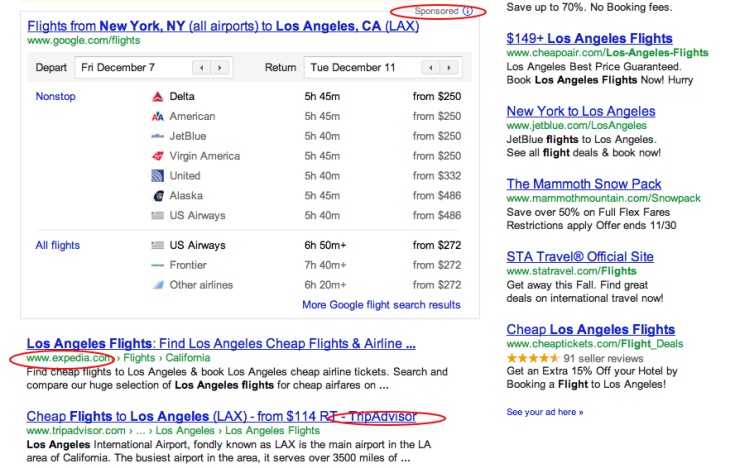Skift Take
The FTC should realize that Google's pointing consumers to its own products does indeed cause consumer harm. A free pass from the FTC would be a setback for consumers, although European regulators would likely be tougher on Google and could force some changes in its vertical-search practices.
There are now enough indications to suggest that any antitrust settlement between the FTC and Google — and the FTC would much prefer to settle than test its case in court — won’t involve “vertical search.” An earlier Reuters report, probably resulting from an internal FTC leak, suggested that vertical search wasn’t the core of the agency’s case against Google.
Today Bloomberg is reporting that the FTC is “wavering” on whether to pursue a formal action against Google. In particular the agency’s own people (anonymous sources) suggest they can’t make the “vertical search bias” claim stick legally.
This is huge. The “search bias” argument is the core of FairSearch and other Google critics’ complaints against the company. While much of the antitrust wrangling playing out in the press is about public relations, there’s a misrepresentation of antitrust law behind Google’s most vocal critic’s arguments. The implication is that somehow antitrust law operates for their benefit — it doesn’t.
The Daily Newsletter
Our daily coverage of the global travel industry. Written by editors and analysts from across Skift’s brands.
Have a confidential tip for Skift? Get in touch
Photo credit: Google flight search results point users to Google Flight Search to the detriment of Expedia and TripAdvisor.
